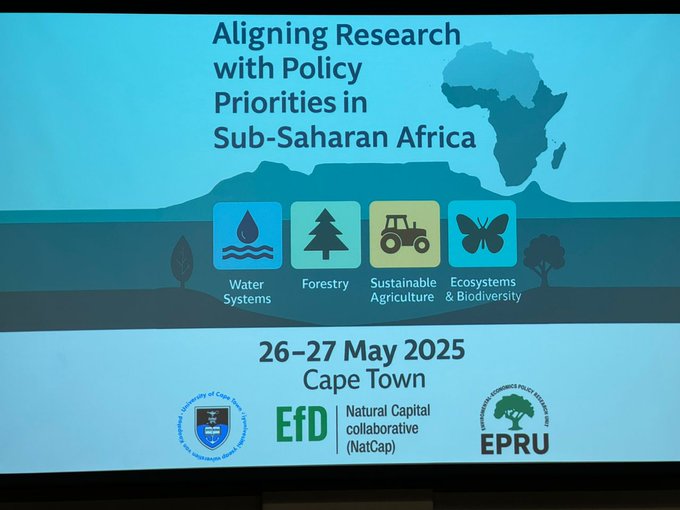The Principal, College of Business and Management Sciences (CoBAMS) Prof. Edward Bbaale, participated in the Natural Capital Collaborative Workshop, held under the theme “Aligning Research with Policy Priorities in Sub-Saharan Africa,” convened by the University of Cape Town from 26th to 27th May, 2025, in Cape Town, South Africa.
The Environment for Development (EfD) Makerere Centre is currently leading its second day training workshop on Natural Capital Accounting (NCA), with generous support from the German Corporation for International Cooperation (GIZ).
Prof. Bbaale shared that the critical capacity-building initiative brings together key representatives from Uganda’s leading public institutions, including the Ministry of Water and Environment, National Water and Sewerage Corporation, Uganda Bureau of Statistics.
He added that this workshop marks another significant milestone in the national effort to recognize and integrate the value of natural capital into Uganda’s economic planning and decision-making. It reflects a growing and collective commitment to safeguarding the country’s natural resources.
The training agenda is both comprehensive and hands-on, designed to equip participants with practical tools and insights to support data-driven environmental governance. The key topics being covered include:
- Input-Output Tables and Multipliers
- Supply and Use Tables & Multipliers
- Social Accounting Matrices (SAM) and Multipliers
- Building the Model for Environmental Policy Assessment (MEPA), with applications in forestry, water and waste, energy, and employment
- Policy simulations and scenario analysis
He said that participants are actively engaging in interactive discussions and practical exercises, fostering peer learning and a deeper understanding of how NCA tools can be applied to real-world policy challenges.
This initiative underscores Environment for Development (EfD)-Makerere Centre’s unwavering commitment to environmental sustainability and its strategic role in bridging the gap between academic research, policy formulation, and implementation.
By equipping policymakers with the knowledge and tools to better account for natural capital, the Centre continues to champion a future where Uganda’s development is both inclusive and ecologically responsible.

